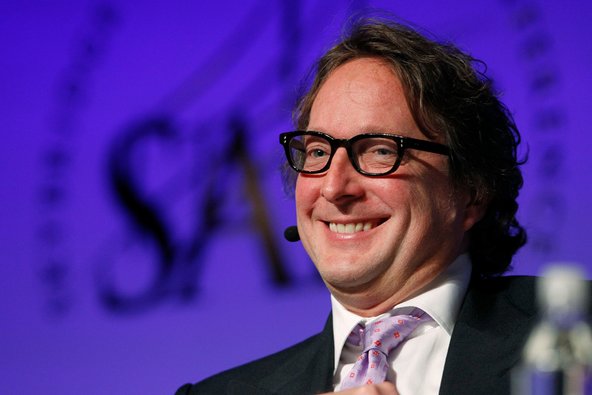 Steve Marcus/ReutersPhilip Falcone, chief of Harbinger Capital Partners, at the SALT hedge fund conference last year.
Steve Marcus/ReutersPhilip Falcone, chief of Harbinger Capital Partners, at the SALT hedge fund conference last year.
The Securities and Exchange Commission overruled its own enforcement division’s decision to settle a civil case with the high-flying money manager Philip A. Falcone and his flagship hedge fund, a rare reversal that signals a broader crackdown by the agency.
The S.E.C. recently notified Mr. Falcone and the fund, Harbinger Capital Partners, that the agency’s five commissioners had rejected “the previously disclosed agreement in principle,” according to a public filing his company made on Friday. The charges stemmed from allegations that Mr. Falcone manipulated the market, used hedge fund assets to pay his own taxes and secretly favored select customers at the expense of others.
The S.E.C.’s rejection of the settlement — a move that will prompt the agency to either enforce a tougher penalty or take Mr. Falcone to trial– suggested that its preliminary deal did not match the gravity of the crime. The deal, announced by Mr. Falcone in May, came with an $18 million penalty from the S.E.C., a rounding error to a hedge fund billionaire. Mr. Falcone was set to personally pay $4 million of the penalty, according to people briefed on the matter, while the fund’s management company would have paid the rest.
While the deal also included at least a two-year ban from raising new capital, a potential death knell to a hedge fund manager, that punishment came with a number of caveats. And in a a moral victory for Mr. Falcone, the deal also omitted a common provision that prohibits defendants from committing future violations with fraudulent intent.
When Mr. Falcone announced the deal, it raised concerns that the S.E.C.’s results fall short of its ambitions. It also reignited criticism of an agency that failed to thwart the financial crisis and Bernard L. Madoff’s Ponzi scheme.
But the rejection of Mr. Falcone’s deal could assuage such concerns and demonstrate a marked shift under its new chairwoman, Mary Jo White, a former federal prosecutor who has vowed to take a hard line against financial fraud.
Already, Ms. White has moved to address a central criticism of the agency: that it allows defendants to neither “admit nor deny” wrongdoing. In a departure from a longtime practice, Ms. White recently announced that the agency would in some cases force Wall Street firms to admit to their crimes.
The leaders of the S.E.C. enforcement unit detailed the policy shift in a memo, saying there might be cases that “justify requiring the defendant’s admission of allegations in our complaint or other acknowledgment of the alleged misconduct as part of any settlement,” noting that such cases arise “particularly when the defendant engaged in egregious intentional misconduct.”
A spokesman for the S.E.C. did not respond to a request for comment. Mr. Falcone’s spokesman declined to discuss the case.
For Mr. Falcone, the agency’s shift will prolong a painful chapter in his long Wall Street career.
It was not long ago that Mr. Falcone, who rose from rural Minnesota to the Harvard hockey team, was seen as one of the shrewdest investors on Wall Street. His prophetic bet against the subprime mortgage market made Mr. Falcone a fortune, success that cemented Mr. Falcone status in Manhattan’s social elite.
Mr. Falcone and his wife, Lisa Maria, soon became fodder for New York tabloids drawn to his rising star power. Their flashy taste for fashion and real estate — to say nothing of a charitable streak that included a $10 million gift to the High Line in Manhattan — reinforced the fascination swirling around him.
Article source: http://dealbook.nytimes.com/2013/07/19/s-e-c-rejects-its-own-deal-with-hedge-fund-manager/?partner=rss&emc=rss
